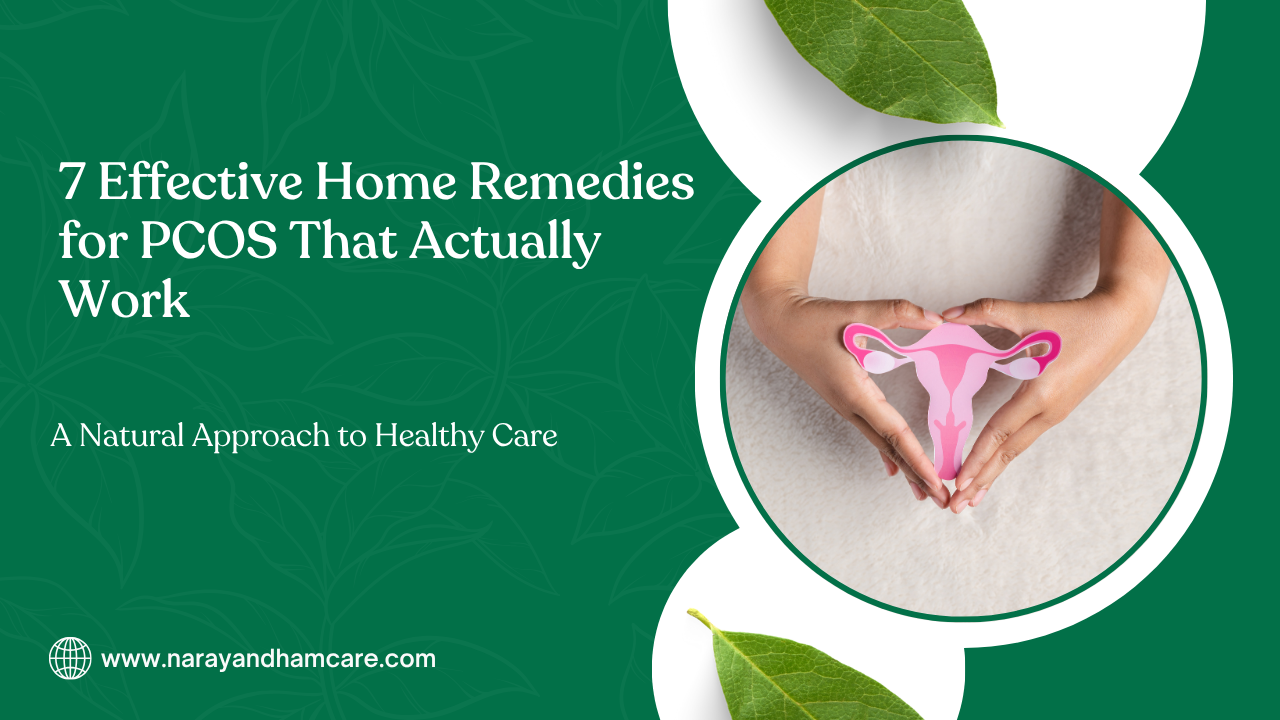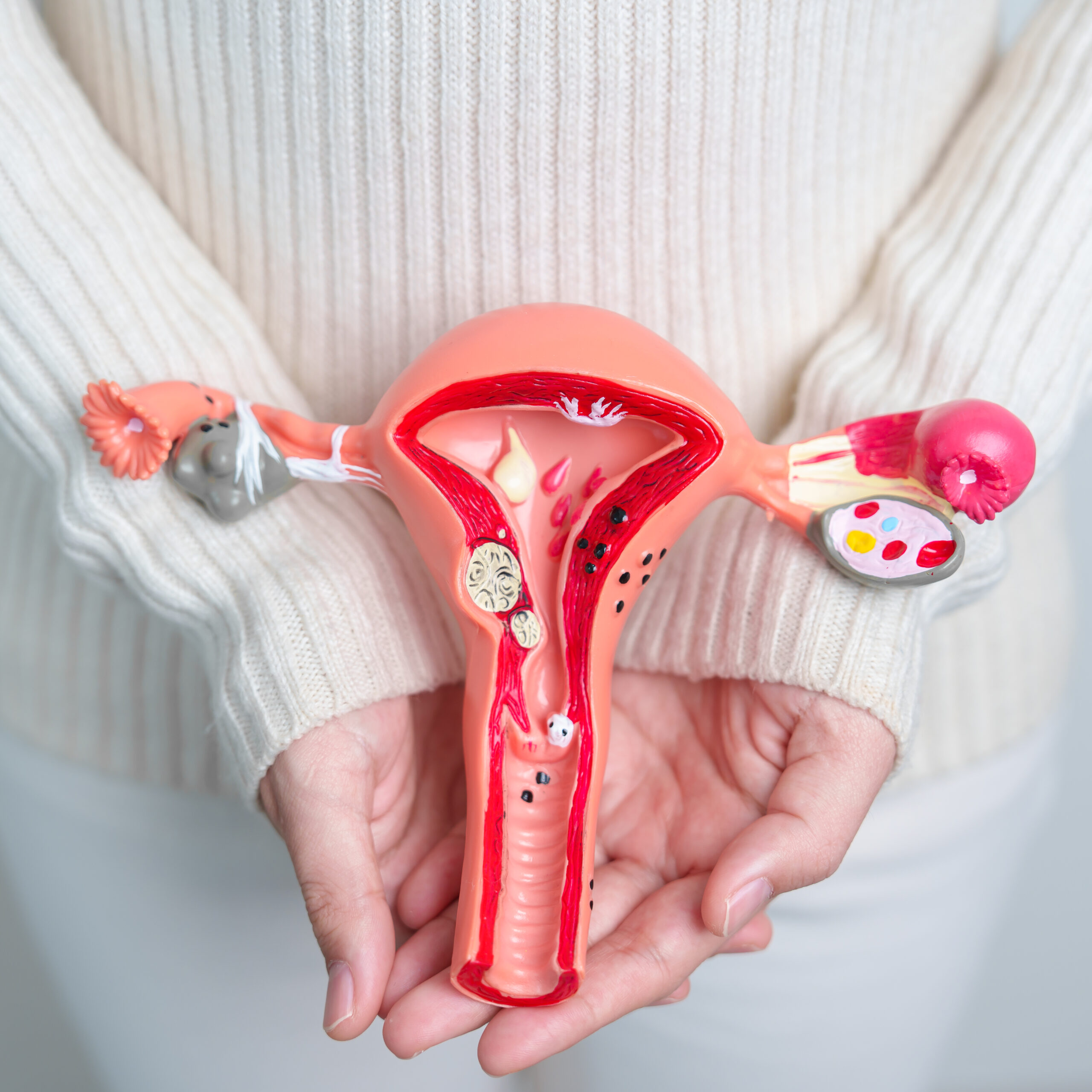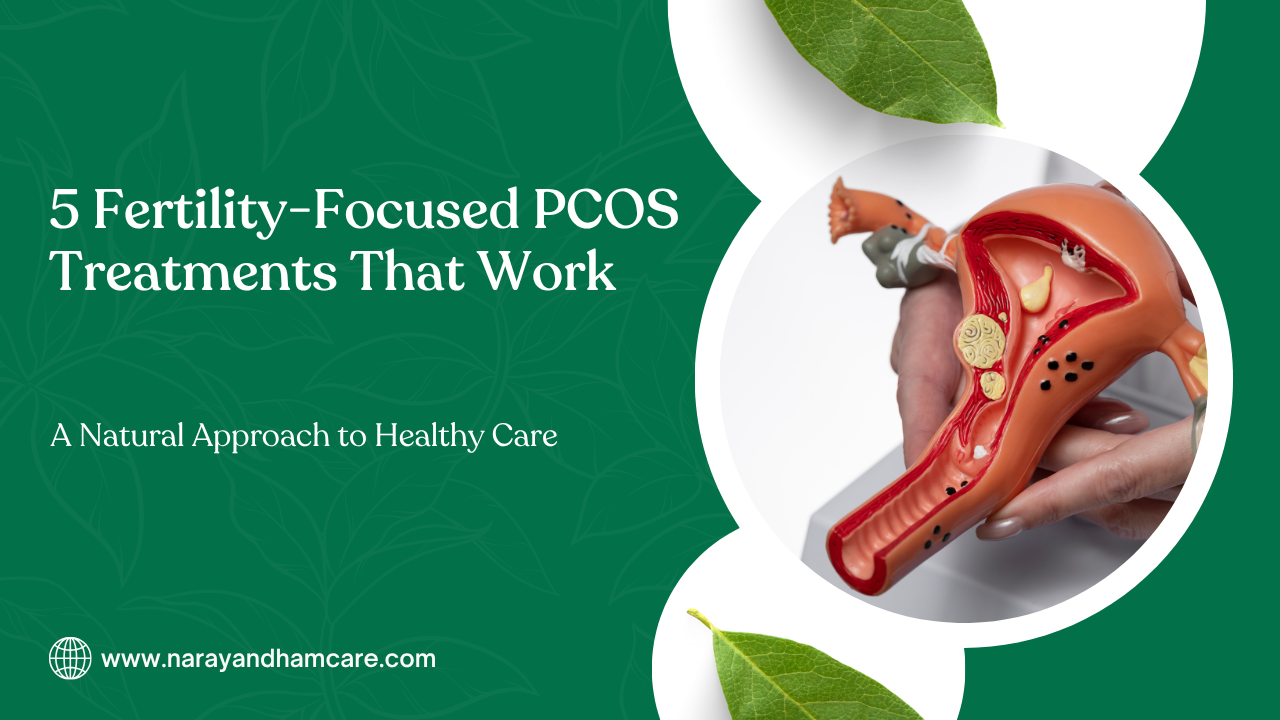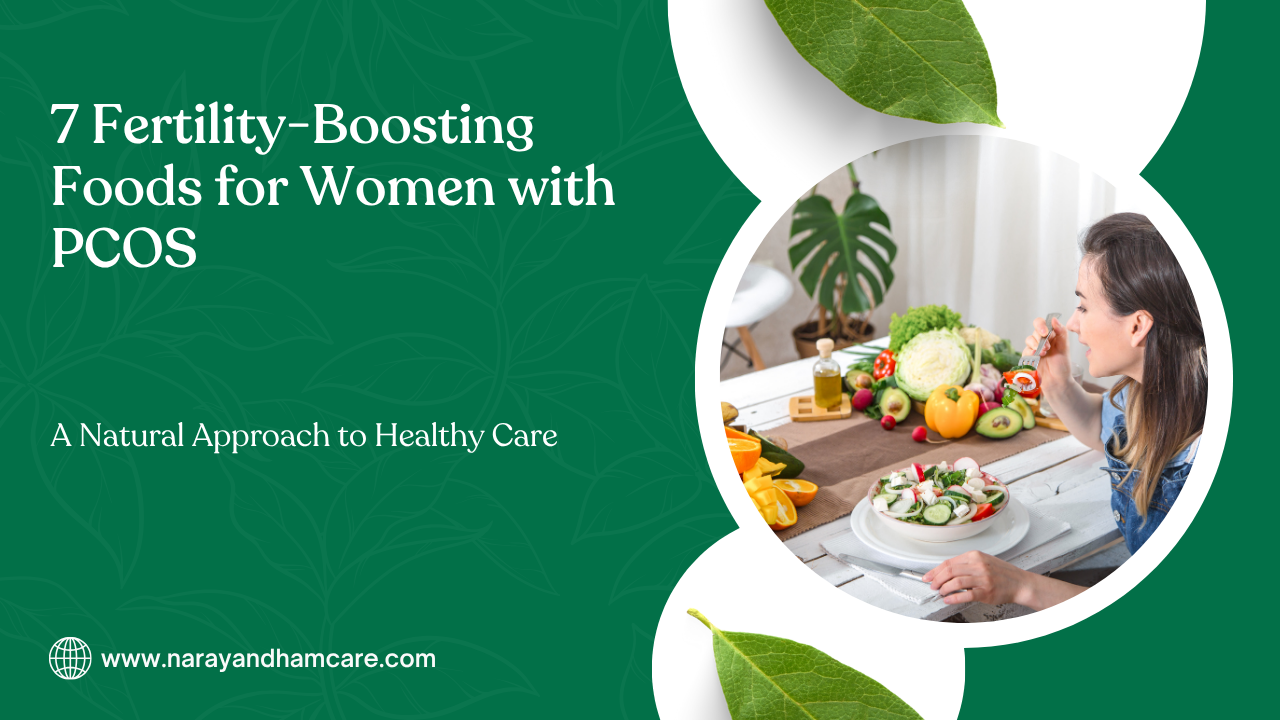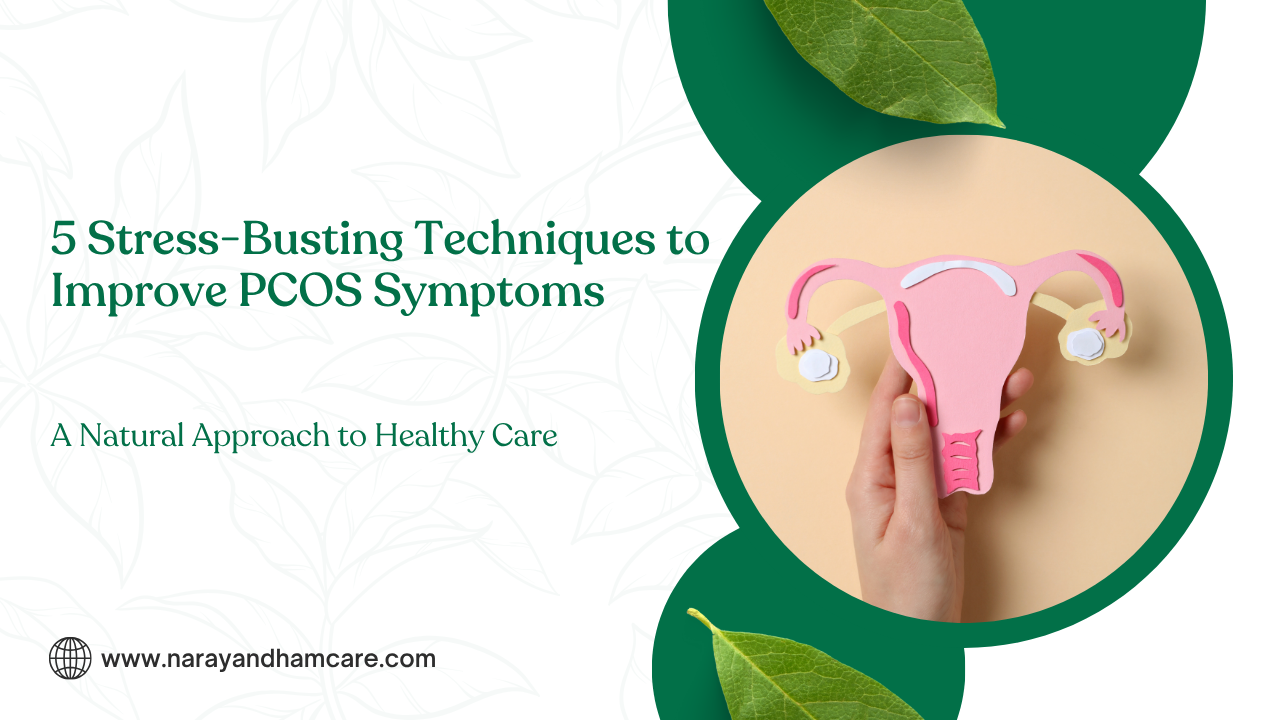PCOS
Introduction: Understanding and Managing PCOS
Are you or someone you know struggling with Polycystic Ovary Syndrome (PCOS)? It’s a common health problem affecting millions of women, especially in their reproductive years. PCOS is more than just irregular periods; it’s a hormonal and metabolic condition that can bring a lot of challenges, from unwanted hair growth to difficulty getting pregnant, and even bigger health risks down the line. The good news is that you don’t have to face it alone, and there are many natural, effective ways to manage PCOS symptoms and improve your overall well-being right from the comfort of your home.
This blog post is designed to be your easy-to-understand guide to 7 home remedies for PCOS that actually work. We’ll break down why these remedies are so important and how you can start using them today to feel better and take control of your health. It’s about empowering you with practical, actionable steps to find relief and live a healthier, happier life with PCOS.
Problem: The Hidden Burden of PCOS
PCOS is a complex health issue that goes beyond just the ovaries. It’s a disorder of the endocrine system, which means it affects how your body’s hormones work. In women with PCOS, the ovaries produce higher levels of androgens (often called “male hormones”) than usual. This imbalance can stop the eggs from maturing and being released regularly, leading to the formation of many small, fluid-filled sacs (cysts) on the ovaries.
The impact of PCOS is far-reaching and can affect a woman’s physical, emotional, and reproductive health. It can be a silent struggle, causing frustration, embarrassment, and even anxiety or depression. Many women feel isolated or misunderstood, especially when their symptoms aren’t always visible. The difficulty in getting a clear diagnosis or finding effective long-term solutions can add to the burden. This makes it crucial to explore all avenues of management, including natural home remedies that can complement medical treatments and provide holistic relief.
Symptoms: What Your Body Might Be Telling You
PCOS symptoms can vary widely in how severe they are and how they show up in different women. However, here are some of the most common signs that could indicate you have PCOS:
- Irregular Periods: This is one of the most classic signs. Your menstrual cycles might be infrequent (oligomenorrhea), completely absent (amenorrhea), or very heavy and unpredictable (menorrhagia). This is due to irregular or absent ovulation.
- Excess Androgen Symptoms: High levels of male hormones can cause noticeable changes:
- Hirsutism: This means excessive hair growth in areas where men typically grow hair, such as the face (upper lip, chin), chest, back, and abdomen.
- Acne: Persistent and often severe acne, especially on the face, chest, and upper back, can be a common symptom.
- Androgenic Alopecia (Hair Thinning): Thinning hair on the scalp or male-pattern baldness.
- Weight Gain and Difficulty Losing Weight: Many women with PCOS find it very hard to manage their weight, often gaining weight around the abdominal area. This is frequently linked to insulin resistance.
- Insulin Resistance: This is a key underlying issue in PCOS. Your body’s cells don’t respond properly to insulin, a hormone that regulates blood sugar. This leads to higher insulin levels in the blood, which can drive up androgen production and contribute to weight gain and an increased risk of type 2 diabetes.
- Fatigue: Feeling constantly tired, even with enough sleep, is a common complaint.
- Mood Swings, Anxiety, and Depression: The hormonal imbalances in PCOS can significantly affect mental health, leading to emotional instability and higher rates of mood disorders.
- Sleep Problems: Difficulty falling or staying asleep (insomnia), or sleep apnea (brief pauses in breathing during sleep).
- Darkening of Skin (Acanthosis Nigricans): Patches of darkened, velvety skin, especially in body creases like the neck, armpits, groin, and under the breasts. This is a sign of insulin resistance.
- Infertility: Irregular or absent ovulation makes it difficult to conceive naturally.
- Ovarian Cysts: While “polycystic” is in the name, these are not true cysts but rather underdeveloped follicles that appear like small pearls on ultrasound.
If you recognize several of these symptoms, it’s highly recommended to consult a healthcare professional for a proper diagnosis.
Solution: Practical Home Remedies for PCOS
Managing PCOS effectively often involves a combination of medical advice and consistent lifestyle changes. These 7 home remedies are practical, actionable, and can be integrated into your daily routine to significantly improve your symptoms and overall well-being.
-
Embrace a PCOS-Friendly Diet: Fuel Your Body Smartly
- What to Eat: Focus on a diet rich in whole, unprocessed foods. This means plenty of colorful vegetables, fruits (in moderation), lean proteins (chicken, fish, legumes, eggs), and healthy fats (avocado, nuts, seeds, olive oil).
- What to Limit/Avoid: Significantly reduce or eliminate refined carbohydrates (white bread, white rice, pasta), sugary drinks, processed snacks, and excessive sugar. These can cause rapid spikes in blood sugar and insulin, worsening insulin resistance and androgen production.
- Why it Helps: A balanced diet stabilizes blood sugar, improves insulin sensitivity, and helps with weight management, which are cornerstones of PCOS treatment. Fiber-rich foods also aid digestion and hormone detoxification.
- Actionable Tip: Start by making one meal a day “PCOS-friendly.” For example, swap your sugary breakfast cereal for a protein-rich smoothie with spinach and berries. Look for low-glycemic index (GI) foods that release sugar slowly.
-
Regular Exercise: Move Your Way to Balance
- What to Do: Aim for at least 30-60 minutes of moderate-intensity exercise most days of the week. This could include brisk walking, cycling, swimming, dancing, or even hiking. Incorporate strength training (like bodyweight exercises or lifting weights) 2-3 times a week, as muscle helps improve insulin sensitivity.
- Why it Helps: Exercise is incredibly powerful for PCOS. It helps with weight management, significantly improves insulin resistance, and can reduce stress. Regular physical activity can also help regulate your menstrual cycle and improve mood.
- Actionable Tip: Find an activity you genuinely enjoy! If the gym isn’t your thing, try a dance class, join a walking group, or practice yoga. Consistency is more important than intensity.
-
Prioritize Stress Management: Calm Your Inner World
- Techniques: Chronic stress can worsen hormonal imbalances in PCOS. Incorporate stress-reducing activities like yoga, meditation, deep breathing exercises, spending time in nature, journaling, or engaging in relaxing hobbies.
- Why it Helps: Reducing stress lowers cortisol levels, a hormone that can negatively impact insulin sensitivity and androgen levels. A calmer mind also helps with better sleep and overall well-being.
- Actionable Tip: Dedicate 10-15 minutes daily to a chosen stress-reduction technique. Even simple deep breathing exercises for a few minutes can make a difference.
-
Ensure Quality Sleep: Rest for Rejuvenation
- Aim for: 7-9 hours of good quality, uninterrupted sleep every night.
- Create a Sleep Routine: Go to bed and wake up at consistent times, even on weekends. Make your bedroom dark, quiet, and cool. Avoid caffeine and heavy meals close to bedtime. Limit screen time (phones, tablets, computers) at least an hour before sleep.
- Why it Helps: Poor sleep can disrupt hormone regulation, increase insulin resistance, and contribute to weight gain and fatigue. Adequate sleep allows your body to repair and rebalance, which is vital for PCOS management.
- Actionable Tip: Try a warm bath or a calming herbal tea (like chamomile) before bed. If you struggle with sleep, consider talking to your doctor.
-
Consider Targeted Supplements (with guidance): Boost Your Body’s Needs
- While diet and lifestyle are primary, certain supplements can offer additional support.
- Commonly Used Supplements (and why they help):
- Myo-inositol and D-chiro-inositol: These “insulin sensitizers” can improve how your body uses insulin, leading to better ovulation and reduced androgen levels.
- Omega-3 Fatty Acids: Found in fish oil, they have anti-inflammatory properties and can improve insulin sensitivity and cholesterol levels.
- Vitamin D: Many women with PCOS are deficient. Vitamin D plays a role in insulin sensitivity, hormone regulation, and fertility.
- Magnesium: Often deficient in PCOS, magnesium helps with blood sugar regulation, reduces cravings, improves sleep, and can ease anxiety.
- Berberine: A compound found in several plants, it’s known to improve insulin sensitivity and can be compared to metformin in some studies.
- Crucial Note: Always consult your doctor or a qualified nutritionist before starting any supplements. They can advise on the correct type, dosage, and potential interactions with other medications.
- Actionable Tip: Discuss these supplements with your healthcare provider to see if they are suitable for your specific needs.
-
Explore Herbal Remedies (with caution): Nature’s Support
- Some herbs have shown promise in managing PCOS symptoms, often by helping balance hormones or reduce inflammation.
- Examples:
- Spearmint Tea: Some studies suggest it can help reduce androgen levels, potentially decreasing hirsutism.
- Cinnamon: May improve insulin sensitivity and regulate menstrual cycles.
- Licorice Root: Can support adrenal glands and help regulate hormones, but should be used with caution as it can affect blood pressure.
- Ashwagandha: An adaptogenic herb that helps the body cope with stress and can support adrenal health.
- Chasteberry (Vitex agnus-castus): Often used to regulate menstrual cycles and promote ovulation.
- Important Warning: Herbal remedies can be potent and may interact with medications or have side effects. Always consult a qualified herbalist, Ayurvedic practitioner, or your doctor before using any herbs, especially if you are pregnant, breastfeeding, or on other medications.
- Actionable Tip: If interested, start with something simple like 1-2 cups of spearmint tea daily and observe how your body responds over a few weeks.
-
Stay Hydrated and Practice Mindful Eating: Simple Yet Powerful
- Hydration: Drink plenty of water throughout the day. Water is essential for every bodily function, including metabolism, hormone transport, and detoxification. It also helps you feel full, potentially reducing cravings.
- Mindful Eating: Pay attention to your body’s hunger and fullness cues. Eat slowly, savor your food, and avoid distractions like TV or your phone. This can help prevent overeating, improve digestion, and foster a healthier relationship with food.
- Why it Helps: Proper hydration supports all metabolic processes essential for PCOS management. Mindful eating helps regulate blood sugar, reduces stress around food, and can assist with weight control.
- Actionable Tip: Keep a water bottle nearby as a constant reminder to sip. Before eating, take a few deep breaths and genuinely assess your hunger level.
Frequently Asked Questions (FAQ)
Q1: Can PCOS go away completely with home remedies? A1: While PCOS cannot be “cured” in the traditional sense, its symptoms can be very effectively managed and even

